Het curatorium van het Nederlands Instituut voor het Nabije Oosten (NINO) heeft op 27 juni 2017 ingestemd met een plan voor nauwere samenwerking met de Universiteit Leiden en het Rijksmuseum van Oudheden (RMO). Onderdeel van dit plan is de oprichting van een NINO-onderzoeksinstituut met een budget van circa. € 300.000 per jaar. De NINO-bibliotheek komt in beheer van de Universiteitsbibliotheek Leiden (UBL) en zal een herkenbaar onderdeel gaan uitmaken van de nieuw te bouwen Middle Eastern Library. Het acquisitiebudget wordt verdubbeld. De spijkerschriftcollectie komt in tijdelijk bruikleen bij het RMO dat zorg zal dragen voor noodzakelijke conservering en versnelde digitalisering. Om optimale toegankelijkheid van de bibliotheek en de spijkerschriftcollectie blijvend te realiseren, starten het NINO-bestuur en de UBL op korte termijn het overleg met medewerkers en met gebruikers van de collecties. De vele tekenen van betrokkenheid die het curatorium heeft ontvangen, bewijzen de grote waardering voor het NINO in heden en verleden. Het curatorium is ervan overtuigd dat de koers die nu is ingeslagen het NINO in staat stelt ook in de toekomst zijn doelstellingen te realiseren.
Today, June 27, 2017, the board of the Netherlands Institute for the Near East (NINO) has agreed on a plan for closer collaboration with Leiden University and the National Museum of Antiquities (RMO). The plan includes the launch of a NINO research institute with an annual budget of ca. € 300.000. In the future, the NINO library will be housed within the University Library as a distinct part of the projected Middle Eastern Library. There will be a 100% increase of the budget for acquisitions. The cuneiform collection will be temporarily stored in the RMO. The museum will be responsible for its conservation and a swift digitalization. In order to secure maximum access of both the library and the tablet collection for the long term, the NINO board will soon get together with the staff and the users of the collections. The many signs of concern sent to the board are evidence of the significant role the NINO has played in the past. The board is confident that the direction now taken will enable NINO to achieve its aims in the future as well.
